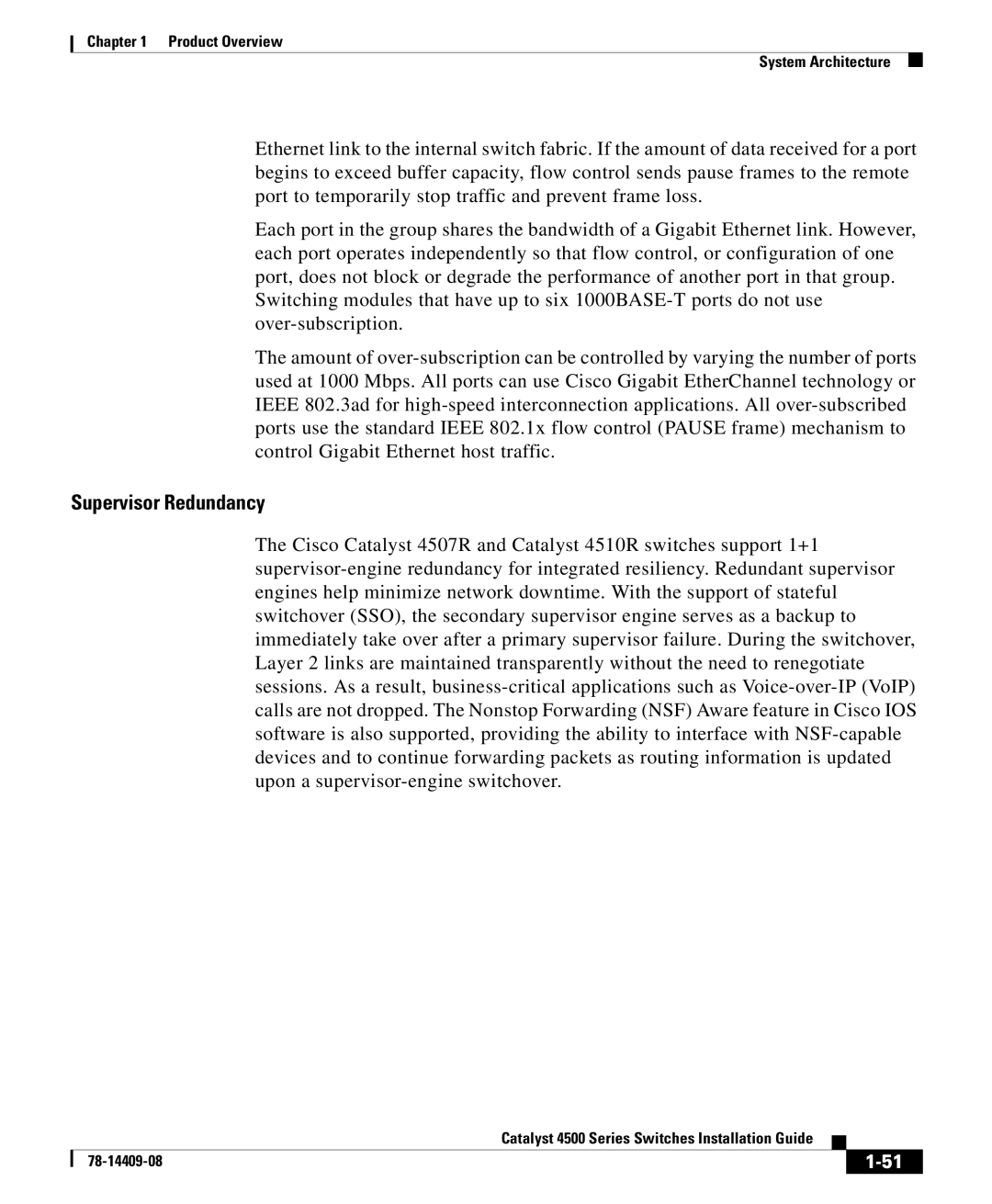Chapter 1 Product Overview
System Architecture
Ethernet link to the internal switch fabric. If the amount of data received for a port begins to exceed buffer capacity, flow control sends pause frames to the remote port to temporarily stop traffic and prevent frame loss.
Each port in the group shares the bandwidth of a Gigabit Ethernet link. However, each port operates independently so that flow control, or configuration of one port, does not block or degrade the performance of another port in that group. Switching modules that have up to six 1000BASE-T ports do not use over-subscription.
The amount of over-subscription can be controlled by varying the number of ports used at 1000 Mbps. All ports can use Cisco Gigabit EtherChannel technology or IEEE 802.3ad for high-speed interconnection applications. All over-subscribed ports use the standard IEEE 802.1x flow control (PAUSE frame) mechanism to control Gigabit Ethernet host traffic.
Supervisor Redundancy
The Cisco Catalyst 4507R and Catalyst 4510R switches support 1+1 supervisor-engine redundancy for integrated resiliency. Redundant supervisor engines help minimize network downtime. With the support of stateful switchover (SSO), the secondary supervisor engine serves as a backup to immediately take over after a primary supervisor failure. During the switchover, Layer 2 links are maintained transparently without the need to renegotiate sessions. As a result, business-critical applications such as Voice-over-IP (VoIP) calls are not dropped. The Nonstop Forwarding (NSF) Aware feature in Cisco IOS software is also supported, providing the ability to interface with NSF-capable devices and to continue forwarding packets as routing information is updated upon a supervisor-engine switchover.
| | Catalyst 4500 Series Switches Installation Guide | | |
| | |
| 78-14409-08 | | | 1-51 |
| | |
